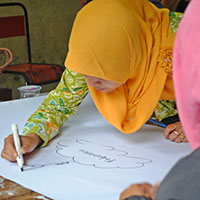How To Teach Your Kids To Write Essays

Essays are a difficult concept to master and they can be especially stressful for children. An essay may be the most complicated piece of writing your child has had to do yet. However, developing the necessary skills is essential as it will also support them in their future educational development. Luckily, there are some simple steps you can take to help support and teach your child to write an essay, whilst also inspiring creativity.
Explain The Basics
Instead of jumping straight into essay writing, you’ll need to make sure that your child has a secure understanding of some basic concepts which will help to make the process easier and more enjoyable. In the first instance, you’ll want to make sure that they have a secure understanding of spelling and grammar, at a level which is appropriate to their age.
Your child may not have come across many essays before and so it can be helpful to explain the concept of thesis as the main concept or point around which their entire essay will be focused. For many children, one of the biggest hardships of essay writing is to write in a focused way. You can help your child by providing them with some thesis prompts or help them to create a thesis statement. As they advance in their writing capabilities, they will be able to think of their own thesis statement.
Understand The Purpose
 As with any other type of writing, children will produce better-quality writing if they have a clear purpose. It’s important that your child understands the goal for writing the essay in the first place, including understanding the requirements or guidelines for the essay. You can also discuss the aim of the essay with them. For example, are they writing an essay that aims to be informative and help to spread awareness or are they writing an essay that’s meant to be persuasive or stimulate discussion?
As with any other type of writing, children will produce better-quality writing if they have a clear purpose. It’s important that your child understands the goal for writing the essay in the first place, including understanding the requirements or guidelines for the essay. You can also discuss the aim of the essay with them. For example, are they writing an essay that aims to be informative and help to spread awareness or are they writing an essay that’s meant to be persuasive or stimulate discussion?
Plan And Structure The Essay
The most successful essays are usually ones which have been carefully planned in advance. Help your child to clearly plan and organize their essay by creating an outline together. You can start by encouraging your child to write down the topic and all the relevant ideas, opinions and research that they have gathered about it. There are a variety of ways and templates you can use for this, including creating a mind-map. This will help your child, and you, to identify what their opinions on the topic are and what the core idea of their essay will be.
From this, you can then support your child to organize their essay into a clearer, more logical structure. Explain the purpose of an introduction and conclusion. These can often be the most challenging parts of the essay to write and it can sometimes be useful to only write them when the main essay has already been completed.
Make sure your child also has a clear understanding of paragraphs. Help them to identify their main points and organize these into individual paragraphs or sections within their essay. Remind your child that the paragraphs should link back to their main idea and logically flow from one to the next.
Share Essay Examples
It can be useful to share examples of high-quality essays with your child, especially if they are unfamiliar with the structure of an essay. It can be helpful for children to know what they are aiming for and to set high aspirations for themselves and their writing. You can either write an essay yourself or find examples online. Discuss which aspects of the essay make it successful and which areas could be improved.
Conclusion
Essay writing can be extremely stressful and daunting for children. Remember to be patient and not to put too much pressure on your child, especially if this is one of the first essays they are having to write. The more they practice, the easier it will become and they will increasingly be able to plan and write an essay independently. Instead, try to create opportunities for them to practice by writing essays about topics they find interesting and engaging. Above all, don’t forget to praise and encourage your child, so that the act of writing becomes an enjoyable learning process.
Author: Katherine Rundell



